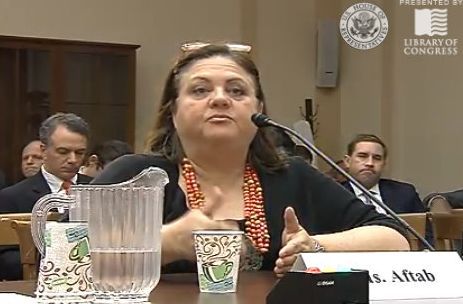






Online Poker Hearing Dismays Poker CommunityPPA Calls It 'An Unfortunate Waste Of Everyone’s Time' |
|
|
 On Wednesday, the House Subcommittee on Crime, Terrorism, Homeland Security, and Investigations discussed the anti-online poker bill from Rep. John Chaffetz (R-Utah). It featured re-runs of old arguments against the popular web card game, as the Poker Players Alliance called it “an exercise in fear mongering” and “an unfortunate waste of everyone’s time.”
On Wednesday, the House Subcommittee on Crime, Terrorism, Homeland Security, and Investigations discussed the anti-online poker bill from Rep. John Chaffetz (R-Utah). It featured re-runs of old arguments against the popular web card game, as the Poker Players Alliance called it “an exercise in fear mongering” and “an unfortunate waste of everyone’s time.”
The hours-long hearing featured testimony from three witnesses who are against online gaming and two who oppose the bill, dubbed the “Restoration of America’s Wire Act.”
The bill seeks to strengthen the 1961 law in order to shut down regulated online poker.
John Kindt, professor at the University of Illinois’ School of Law, got the hearing underway by claiming that governments can’t regulate Internet gambling effectively. He called online gaming the “crack cocaine” of the betting industry. The PPA summed up Kindt’s views in a simple tweet.
Kindt hates gambling, we get it.
— PokerPlayersAlliance (@ppapoker) March 25, 2015
“Government sponsored gambling” is giving rise to inequality, Les Bernal, National Director of the Stop Predatory Gambling Foundation, argued next. Like Kindt, Bernal expressed anti-gambling views. It’s not just Internet gaming that he dislikes, but apparently the entire betting industry.
The last of the anti-online poker advocates to testify, Mike Fagan, professor at Washington University’s School of Law, said that the 2011 decision by the DoJ to water down the Wire Act was a wrong re-interpretation. Fagan brought up exploitation and addiction when condemning online gaming. He went on to say there’s a link between online gaming and terrorism.
Washington D.C. gaming attorney Jeff Ifrah said after Fagan’s remarks.
According to all witnesses Internet gaming leads to terrorism, collapse of financial markets and end of world order #FairAndBalanced #RAWA
— Ifrah Law (@ifrahlaw) March 25, 2015
Fagan said that there was concern about whether the DoJ re-interpretation was corrupt.
Next up was Andrew Moylan, Executive Director at R Street, who is against RAWA. He said that states should be able to exercise their rights under the Constitution to pursue online gaming if they so chose. RAWA is widely considered an anti-states’ rights proposal.
“The federal government is too large and too powerful,” Moylan said.
Moylan called RAWA “problematic.”
Parry Aftab, Executive Director at Wired Safety, testified that “once you legalize online gambling with an intrastate [model] you have partners in shutting down [illegal sites].” Her point underscored that online gaming is going to occur even if you try to outlaw it. It makes more sense to regulate it and protect consumers. Some poker advocates thanked Aftab on Twitter for her testimony.
Rep. Bob Goodlatte (R-VA), chairman of the House Judiciary Committee, for some reason asked witnesses explicitly if they support or oppose the bill even though their respective testimony made their positions abundantly clear. To no one’s surprise, the first three witnesses said they support RAWA, while the last two said they oppose it.
Later in the hearing, Rep. Sheila Jackson Lee (D-Texas) suggested that there would be a markup on the bill, setting up a scenario in which the bill will be vetted by the full Judiciary Committee. However, as Capitol Hill gaming insider Joe Brennan Jr. pointed out on Twitter, years ago a pro-online poker bill from retired Congressman Barney Frank received a markup but never advanced further than that. Online poker players shouldn’t be worried by Wednesday’s hearing.
Professional poker players also chimed in on the nature of the hearing. Daniel Negreanu tweeted about the lack of intellect on display by America’s leaders.
Being well spoken or having an understanding of the topic you are debating is not required to be a politician. #ThingsIveLearned2day #RAWA
— Daniel Negreanu (@RealKidPoker) March 25, 2015
The circus around Wednesday’s RAWA hearing can be seen as a win for online poker advocates. The chances of RAWA passing were very low even before the hearing.
“Historical voting data shows that RAWA—or any other federal Internet gambling bill introduced in this congressional session, whether it be prohibitory or not—is facing very long odds indeed," GamblingCompliance’s Chris Krafcik told Card Player. "According to our research and to figures from GovTrack.us, the enactment rate for Internet gambling bills introduced between 1995 and 2014 was approximately 2 percent, which is well below the approximate 3.7 percent enactment rate for all bills introduced during that 20-year period.”
